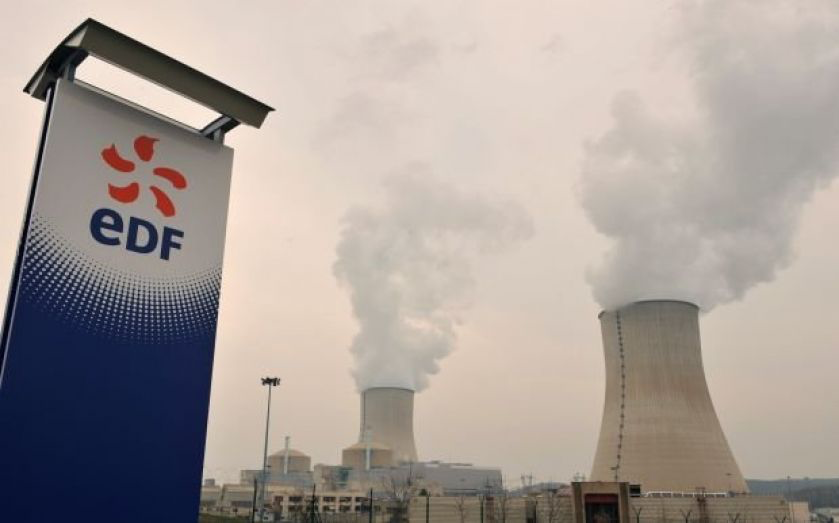French state-owned utility EDF has announced a significant shift in its approach to designing small modular nuclear reactors (SMRs). Instead of continuing to develop its proprietary innovations, EDF will now utilize existing, proven technologies. This strategic pivot comes amid concerns over costs and technological feasibility.
EDF did not specify the budgetary impact of this redrafting effort after four years of development. It also remains unclear if this decision will delay the market rollout of its SMRs, initially slated for the 2030s. A source at Nuward, EDF’s subsidiary responsible for the SMR design, indicated that the decision followed discussions with potential clients like Vattenfall, CEZ, and Fortum. These companies are keen on investing in both full-size nuclear plants and the new small-scale reactors but require assurances on cost control and timely delivery.
Market Demands and Design Revisions
Prospective buyers need confidence that the promised costs will not escalate and that delivery deadlines will be met. They are more inclined to invest in a product based on proven technologies, ensuring the levelized cost of electricity for SMRs remains between 70 and 100 euros per megawatt-hour, the source explained.
In an emailed statement, EDF confirmed that Nuward had reached the basic design phase, allowing the engineering teams to study the complete model in detail. At this juncture, EDF decided to “evolve the design” to improve success chances by focusing on established technological components. “The reorientation consists of developing a design built exclusively from proven technological bricks. It will offer better conditions for success by facilitating technical feasibility,” an EDF spokesperson stated via email.
SMRs are smaller nuclear reactors designed to be more cost-effective and quicker to deploy than full-size models, which can take decades to build. They are primarily intended to replace coal-fired plants or provide localized electricity for small industrial sites or remote areas.
A new plan of action for the design choice is expected in several months, according to the Nuward source. EDF’s public announcement follows a report by French investigative outlet L’Informé, which cited company sources saying the internal SMR design faced significant engineering challenges. Consequently, EDF would need to partner with other companies or use off-the-shelf technologies to avoid delays and budget overruns.
Industry Implications and Future Prospects
The shift in EDF’s strategy underscores the challenges of developing new nuclear technologies in a market where cost and reliability are paramount concerns. The decision to abandon bespoke technological innovations in favor of proven solutions may streamline the development process and reduce financial risk, but it also highlights the difficulty of pioneering new advancements in the nuclear sector.
EDF’s move reflects broader trends in the nuclear industry, where the adoption of small modular reactors is seen as a potential game-changer for energy production. SMRs are touted for their flexibility, smaller footprint, and ability to be deployed more rapidly compared to traditional nuclear plants. These characteristics make them attractive for a variety of applications, from replacing outdated coal plants to providing power in remote locations.
However, the path to widespread adoption of SMRs is fraught with obstacles. Engineering difficulties, regulatory hurdles, and market acceptance are significant challenges that companies like EDF must navigate. The decision to pivot towards proven technologies could mitigate some of these risks, but it also places pressure on EDF to deliver on its promises without further delays or cost increases.
Strategic Partnerships and Market Positioning
Nuward had received state subsidies for its innovation efforts. Additionally, EDF has signed agreements with companies across Europe to develop SMRs alongside conventional large reactors. This collaborative approach underscores the importance of leveraging existing technology to meet market demands efficiently.
By aligning with established technologies and forming strategic partnerships, EDF aims to enhance the credibility and market appeal of its SMR offerings. The collaboration with companies such as Vattenfall, CEZ, and Fortum is indicative of a strategic effort to secure investments and ensure the viability of SMRs in a competitive energy market.
EDF’s focus on proven technologies is likely to reassure potential investors and stakeholders about the feasibility and cost-effectiveness of SMRs. This shift could also accelerate the timeline for bringing these reactors to market, providing a much-needed boost to the global effort to transition to cleaner and more sustainable energy sources.
Source: Reuters



